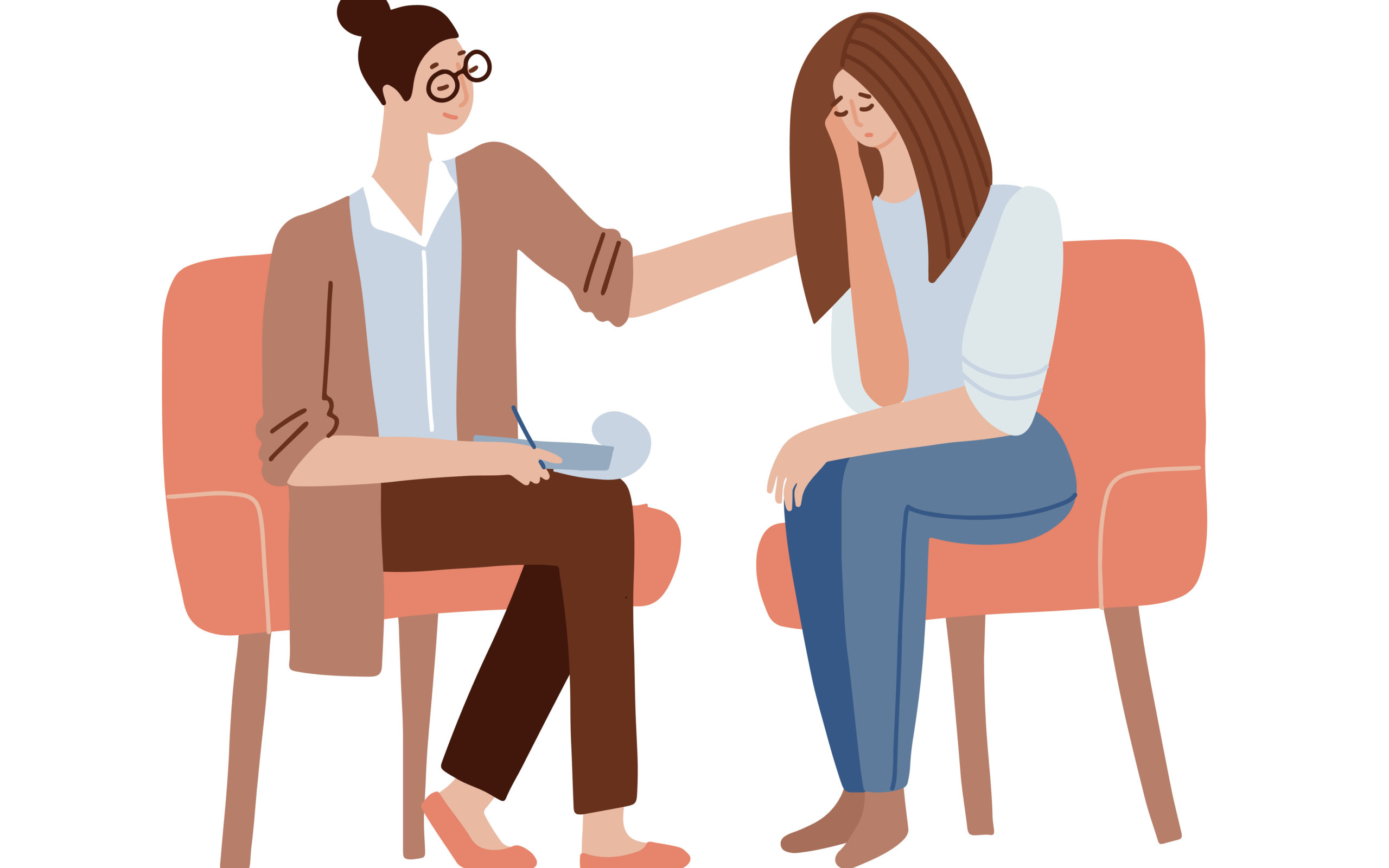Discovering the Best Psychologist in Delhi: A Guide to Your Psychological Wellness Trip
Discovering the Best Psychologist in Delhi: A Guide to Your Psychological Wellness Trip
Blog Article
Psych Therapy: A Comprehensive Overview to Techniques and End Results

Cognitive-Behavioral Therapy
Cognitive-Behavioral Therapy (CBT) is a widely utilized psychotherapeutic approach that concentrates on identifying and changing inefficient thinking and actions patterns. Created in the 1960s by Aaron T. Beck, CBT incorporates behavioral and cognitive theories to resolve different mental health concerns, including depression, stress and anxiety, and stress-related problems. The property of CBT is that maladaptive thoughts add to psychological distress and maladaptive habits. By restructuring these ideas, individuals can achieve substantial improvements in their psychological health and day-to-day functioning.
CBT is defined by its organized, ambitious nature. Therapy usually entails a collaborative process in between the therapist and client, where particular issues are determined, and sensible strategies are developed to address them. Techniques such as cognitive restructuring, exposure therapy, and skill-building exercises are generally used. Cognitive restructuring involves challenging and altering unfavorable thought patterns, while exposure therapy intends to decrease concern and anxiousness via steady exposure to been afraid items or circumstances.
Evidence-based research study sustains the effectiveness of CBT for a large range of emotional conditions - Best Psychologist in Delhi. Its focus on skill acquisition and self-help strategies empowers clients to proceed progression separately after therapy concludes. The flexibility and efficiency of CBT have made it a cornerstone in modern psychotherapeutic practice
Psychodynamic Strategies
Rooted in the very early theories of Sigmund Freud, psychodynamic strategies concentrate on discovering the unconscious mind and its influence on actions and feelings. These methods aim to discover covert thoughts and sensations that may be driving maladaptive behaviors and psychological distress. Central to this strategy is the idea of internal problem, often coming from unresolved past experiences, specifically those from youth.
Therapists utilizing psychodynamic strategies use several vital techniques, consisting of totally free organization, where people are encouraged to talk freely to expose subconscious product, and desire analysis, which analyzes the concealed content of desires. In addition, the expedition of transfer and countertransference dynamics within the healing partnership is essential. These communications can offer understandings right into the person's interior globe and relational patterns.
Psychodynamic treatment is typically longer-term contrasted to various other methods, offering a comprehensive and deep understanding of the individual's subconscious. Study suggests that it can be particularly efficient for intricate mental health problems, such as personality problems and persistent depression. By fostering self-awareness and emotional understanding, psychodynamic treatment seeks to bring unconscious product to awareness, making it possible for people to attain lasting and significant adjustment in their lives.
Humanistic Strategies
Structure on the structures laid by psychodynamic strategies, humanistic techniques provide a distinct viewpoint concentrated on private prospective and self-actualization. Coming from the mid-20th century, these techniques focus on the inherent goodness and growth possibility of individuals, emphasizing a holistic view of human experience. Key numbers such as Carl Rogers and Abraham Maslow have actually considerably affected this therapeutic approach, which includes approaches like client-centered therapy and Gestalt treatment.
Client-centered therapy, established by Rogers, plays a crucial function in humanistic techniques. It relies upon the therapist providing a setting of genuine favorable regard, compassion, and harmony. This promotes a safe room for customers to explore their sensations and experiences without judgment, assisting in self-discovery and individual development. The specialist's function is more of a facilitator than an authority, click to read encouraging clients to harness their internal resources for healing.
Gestalt therapy, an additional vital humanistic strategy, highlights existing moment understanding and the combination of body and mind. By focusing on the "present moment," customers gain higher understanding into their existing emotions and actions. Strategies such as role-playing and assisted visualization are commonly utilized to aid clients gain a much deeper understanding of themselves, ultimately leading to boosted self-awareness and fulfillment.
Integrative Therapies
Integrative therapies stand for a synthesis of numerous restorative methods tailored to fulfill the one-of-a-kind needs of each client. This method acknowledges the complexity of human psychology and the diverse nature of psychological health concerns. By incorporating aspects from various institutions of psychiatric therapy-- such as cognitive-behavioral therapy (CBT), psychodynamic treatment, and humanistic methods-- integrative treatments offer an even more holistic and versatile treatment standard.
Experts of integrative treatment evaluate each client's particular needs, signs, and personal history to develop a customized treatment plan. This customized approach boosts the possibility for restorative success by attending to the origin triggers of emotional distress and advertising general health. Strategies may include mindfulness exercises, cognitive restructuring, and emotional handling, each chosen to target different elements of the customer's concerns.
Additionally, integrative therapies highlight the restorative partnership, viewing the client-therapist bond as an important element of effective treatment. This relationship fosters a helpful setting where clients really feel safe to explore and resolve their issues. The adaptability of integrative treatments makes them suitable for a broad series of conditions, consisting of anxiety, anxiety, trauma, and social difficulties, thereby increasing their applicability and effectiveness in varied medical settings.

Gauging Treatment End Results
Examining the effectiveness of psychotherapy is critical for both medical professionals and customers to guarantee that the treatment is generating the preferred end results. To attain this, various techniques and devices are utilized to measure therapy end results systematically. Standardized evaluation instruments, such as the Beck Anxiety Supply (BDI) and the Generalized Anxiety Problem 7 (GAD-7), supply measurable information on symptom extent and modifications over time.
In addition to standard tools, qualitative approaches like client self-reports and professional meetings supply useful insights into the personal experiences and regarded progression of clients. Consistently scheduled evaluations, typically his comment is here at the start, navel, and end of treatment, aid in tracking the trajectory of improvement or identifying locations needing change.
Result dimension is not limited to symptom reduction; it additionally incorporates practical enhancements in every day life, such as much better interpersonal relationships, increased work productivity, and improved general health. Modern developments in electronic health and wellness have presented mobile apps and on-line platforms that assist in real-time surveillance and comments, additionally improving the analysis process.
Inevitably, a thorough strategy to gauging treatment end results makes certain that therapeutic interventions work, efficient, and customized to meet the individual needs of customers, thereby enhancing the overall therapeutic experience.
Conclusion
Humanistic methods focus on individual growth and self-actualization, while integrative therapies incorporate several approaches for customized therapy plans. Evaluating treatment results through standard assessments and qualitative techniques makes certain a thorough understanding of performance, ultimately directing customers towards withstanding psychological wellness enhancements.
From the organized technique of Cognitive-Behavioral Therapy (CBT) to the deep exploration of the subconscious in psychodynamic treatment, each method brings one-of-a-kind benefits. Its emphasis on skill procurement and self-help methods encourages customers to proceed progress independently after therapy wraps up (Best Psychologist in Delhi). Secret numbers such as Carl Rogers and Abraham Maslow have considerably affected this restorative technique, which incorporates methods like client-centered therapy and Gestalt treatment

Report this page